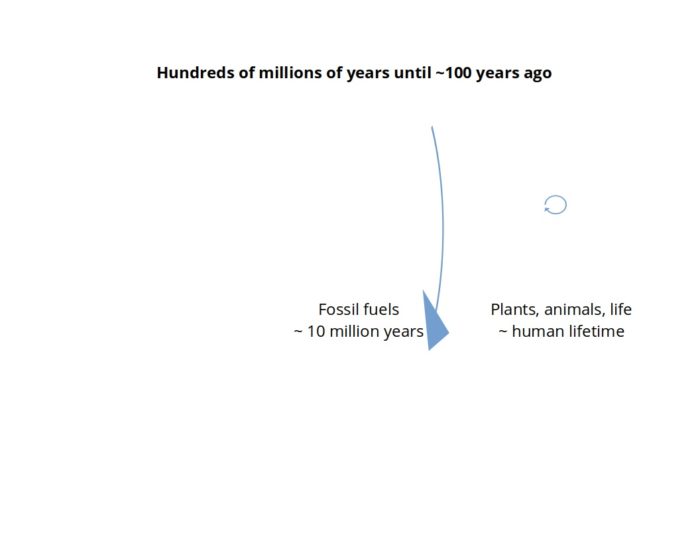Want to live more sustainably: The measure that matters
If you’re considering changing practices to live more sustainably, how can you tell among different practices suggested by different groups, often self-serving, which are more effective or even effective at all?
Does recycling work for paper, metal, glass or plastic? Does changing your diet help? How about carbon offsets for flying?
One measure matters more than almost any other, I contend:
How much fossil fuel does the change keep underground?
For example, if you buy carbon offsets for a flight, you may fund some project, but you still paid for oil to be pumped out of the ground for the jet fuel. Few projects offsets pay for keep oil in the ground. If you find yourself contorting to explain how planting trees or whatever activity not explicitly reducing pumping is reducing pumping, it probably isn’t.
It helps to Know the 2 carbon cycles without confusing them.

Reread that post if you aren’t familiar with it, but it distinguishes between cycles involving fossil fuels and those among living things, which are faster and less permanent. Acting on the latter doesn’t change the former much. Since pollution and climate change depend on the former, it matters most.
Examples
If you recycle, say, a plastic bottle for a product you bought, you paid for oil to make the container, but you aren’t putting oil back in the ground by recycling it. You’re mostly shuffling already drilled oil.
If you bike somewhere instead of drive, you’re not paying for pumping oil. It makes a difference.
If you don’t buy something, again, your not paying for oil to manufacturer and deliver it. It makes a difference.
Having one fewer child than you would have means not having to burn oil for all the goods he or she would have consumed. It makes a difference.
If you ignore this measure or try to convince people you’re affecting it through means less clear than eating less factory-farmed meat causes less oil to be burned for intensive agriculture, you may be following in footsteps in a place like Enron’s legacy of accounting trickery more than you’d like.
Read my weekly newsletter

On initiative, leadership, the environment, and burpees